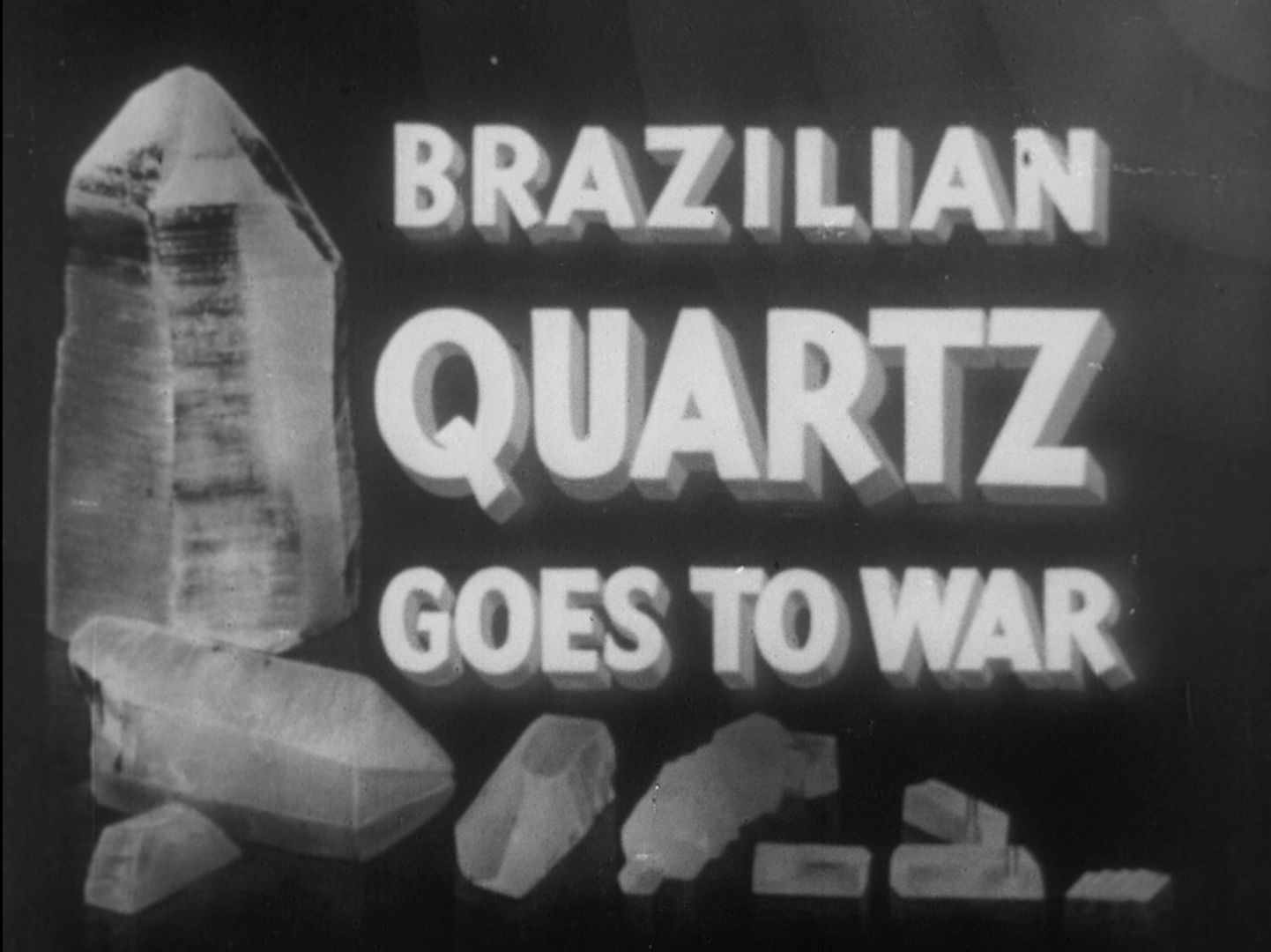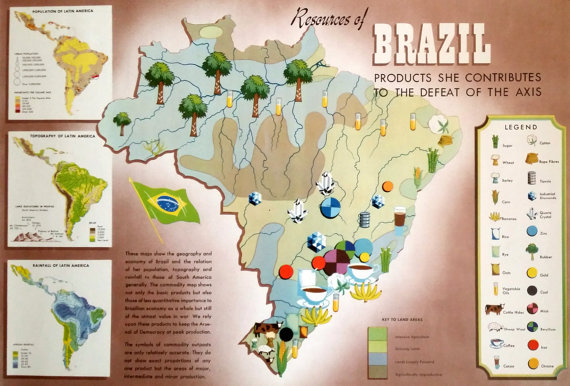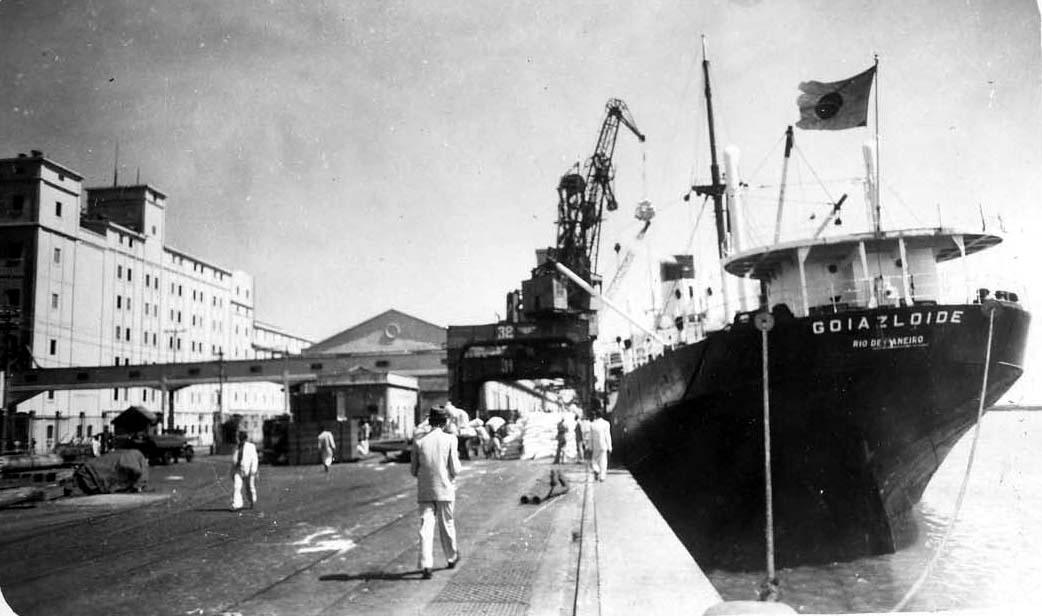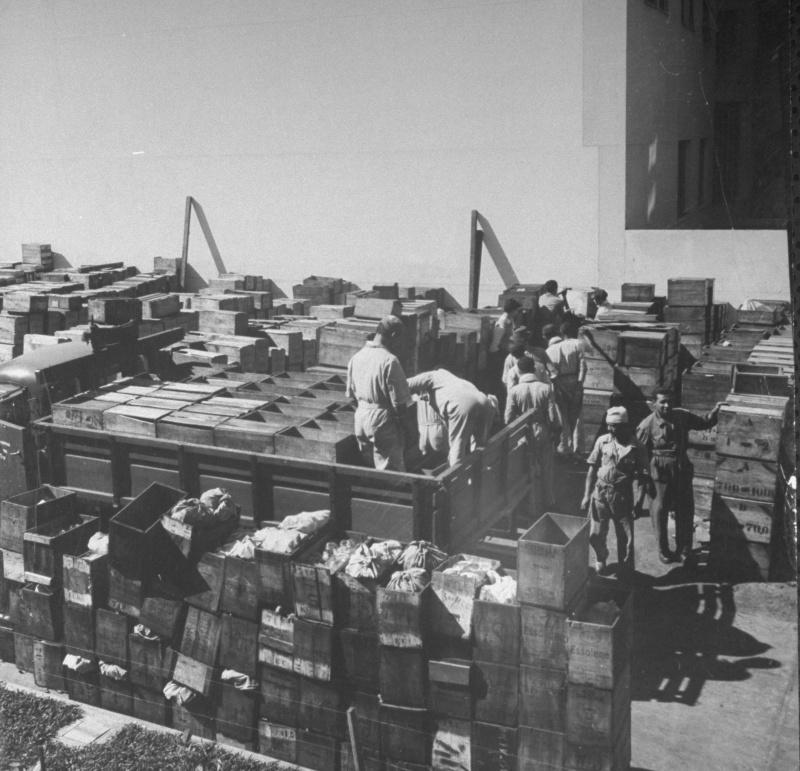BRAZILIAN RAW MATERIAL FOR THE ALLIES - SHIPMENTS TO U.S.A.
ARSENAL OF DEMOCRACY
The Great Arsenal of Democracy is one of the most famous of 30 speeches given by Roosevelt, then the President of America. The term Arsenal of Democracy was used by Roosevelt for Detroit (Michigan) where the auto industry had started to produce war goods for being supplied to Britain. The speech was given on December 29, 1940, the time when Nazi Germany had ran over almost all of the Europe with Britain only standing in way.
Nazis had joined hands with Italy and Japan (Axis Powers). They were also collaborating with Soviet Russia. The speech was given to arouse the American people in support of the war effort. America policy at that time was divided into Interventionists and Isolationists.
While the former supported the intervention into the war the later were against it. However the speech certainly helped to turn the wave in favor of the Interventionists. The term 'Arsenal of Democracy' was not originally coined by Roosevelt but by Jean Monnet, who was working as the supply coordinator and economic liaison to the United States for the French government in exile.
During a meeting with Roosevelt he had coined the phrase but was asked to use the phrase again. Since then Roosevelt has got all the adulation for the phrase. He had used this celebrated phrase in the following lines:"We must be the great arsenal of democracy. For us this is an emergency as serious as war itself. We must apply ourselves to our task with the same resolution, the same sense of urgency, the same spirit of patriotism and sacrifice as we would show were we at war."
Throughout the war Brazil supplied United States with a vast array of raw materials including iron ore, the badly needed rubber, which Brazil supplied 3/5 of all world production, wolfram, tin, gems, sugar, coffee, cacao, nuts, meat, wool and woods, bauxite, thorium - rich monazite sands (this last used in atomic energy research), mica, quartz crystal, cobalt, zirconium chrome, palladium, beryl, manganese, industrial diamonds, nickel, cattle hides, sheep wool, oats, gold, vegetable oils, coal, rye, rubber, rice, zinc, bananas, corn, barley, tannin, wheat, rope fibres and cotton, etc.
The mines of Brazil provided an even greater amount, vital strategic products, since it had the country's fifth of the manganese reserves throughout the world, half of beryl, an important element for the tightness of all metals, the bauxite, used to make aluminum for airplanes.
The higly valuable industrial diamonds, which is the only source on the continent, and is also the only exporter of titanium, suitable for the manufacture of tools, as it is the sole producer of world's top quality quartz, used in the manufacture of radios, appliances to reveal submarines and aircraft, handle-of-sight and periscopes; zirconium, for ammunition, castor oil, to high speed engines; hemp for ropes, leather, for use in aircraft, tanks and ships, kapok, to life savers and increasing amount of rubber. These material contributions hastened the Brazilian decision to join the Allies in the war.


A Brazilian War poster with country's map depicting the vast array of the immense natural resources put at disposition of the United States War industry.

One Brazilian merchantman at Recife harbor circa 1943 waiting to be loaded with sugar. That vital commodity was exported in large quantity to the United States. During War period Brazil increased substantially the production of sundry raw materials to meet all necessities claimed by US mainly iron ore, rubber, sugar, coffee and cotton.

Crystal Quartz was one critical badly needed war material which American industry used in radio transmitters.

Cotton. One of the most important raw materials of the war. From Northeastern crop fields hundreds of tons were sent to the US.

From the sugar mills located a few miles from Recife, trains ladden with that vital commodity were loaded into cargo ships at Recife and shipped to U.S. ports.